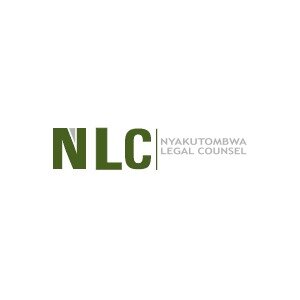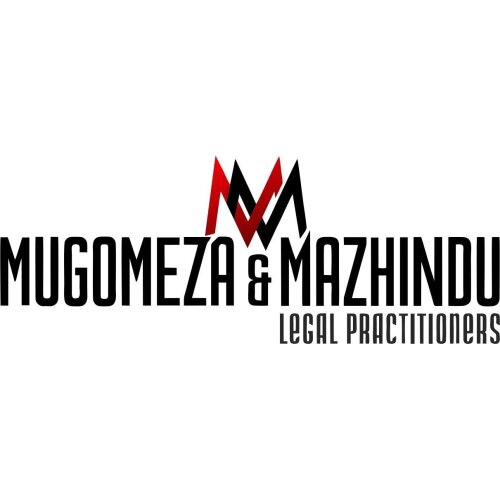Best Oil, Gas & Energy Lawyers in Harare
Share your needs with us, get contacted by law firms.
Free. Takes 2 min.
List of the best lawyers in Harare, Zimbabwe
About Oil, Gas & Energy Law in Harare, Zimbabwe
Oil, Gas & Energy law in Harare, Zimbabwe, is a dynamic field that involves the legal aspects of the extraction, production, distribution, and usage of energy resources. Zimbabwe has been exploring avenues to harness its oil, gas, and renewable energy potentials to address its energy needs and foster economic growth. Harare, as the capital city, serves as the hub for energy-related activities, including policy-making, regulation, and investment. The sector is governed by a complex interplay of national policies, regulatory standards, and environmental considerations.
Why You May Need a Lawyer
Understanding the intricacies of Oil, Gas & Energy law can be challenging for individuals and businesses alike. Here are some scenarios where legal assistance might be necessary:
- Contract Negotiation: Whether you are an investor or a landowner, negotiating leases or other contractual agreements can be complex and requires legal expertise.
- Regulatory Compliance: Ensuring compliance with national and local regulations to avoid legal penalties and to operate within legal frameworks.
- Dispute Resolution: Legal conflicts may arise with contractors, government bodies, or between companies in joint ventures.
- Licensing and Permits: Navigating the legal processes to obtain necessary licenses and permits for exploration and extraction activities.
- Environmental Impact Assessments: Providing guidance on environmental laws and implications for oil, gas, and energy projects.
Local Laws Overview
The oil, gas, and energy sector in Harare, Zimbabwe, is primarily governed under various pieces of legislation, including the Petroleum Act, the Energy Regulatory Authority Act, and the Environmental Management Act, among others. Key aspects include:
- Exploration and Production Regulations: Rules surrounding the exploration and licensing of resources, managed by the Ministry of Mines and Mining Development.
- Energy Sector Regulations: The Zimbabwe Energy Regulatory Authority (ZERA) oversees the regulation of energy production, distribution, and consumption.
- Environmental Regulations: Protecting ecological systems is pivotal, and regulations ensure that energy projects adhere to environmental standards.
- Public and Private Sector Roles: Laws defining the collaboration between government entities and private companies in energy projects.
Frequently Asked Questions
What permits do I need for oil exploration?
To engage in oil exploration, you need an exploration license from the Ministry of Mines and Mining Development, alongside environmental permits.
Are there any tax incentives for renewable energy projects?
Yes, Zimbabwe provides various tax incentives to promote renewable energy projects, aiming to encourage sustainable energy sources.
How is the energy sector regulated in Zimbabwe?
The energy sector is regulated by the Zimbabwe Energy Regulatory Authority (ZERA), which is responsible for licensing and ensuring compliance with energy laws.
What legal documents are crucial for starting an energy business?
Essential documents include business registration, sector-specific licenses, environmental impact assessments, and any partnership agreements.
How do I resolve a dispute with a contractor?
Dispute resolution can involve negotiation, mediation, or legal action through the courts. Legal advice is recommended to choose the best path.
What impact do local energy policies have on foreign investors?
Policies provide a framework for operations and investments, including specific provisions or incentives for foreign investors in the energy sector.
Can local communities challenge energy projects?
Yes, local communities can challenge projects that may affect them through environmental assessments and public consultations.
What is the role of environmental assessments in energy projects?
Environmental assessments evaluate the potential ecological impact of a project to ensure compliance with environmental laws and sustainable practices.
Why is legal compliance important for energy companies?
Legal compliance prevents penalties, ensures smooth operations, and maintains a positive reputation and relationship with stakeholders and regulators.
Are there specific laws concerning renewable energy?
Yes, Zimbabwe has regulations promoting the use of renewable energy, aiming to diversify the energy supply and enhance sustainability.
Additional Resources
- Zimbabwe Energy Regulatory Authority (ZERA): The primary regulatory body for energy in Zimbabwe, providing necessary guidelines and support.
- Ministry of Mines and Mining Development: Oversees exploration licenses and resource management related to oil and gas.
- Environmental Management Agency (EMA): Ensures compliance with environmental laws related to energy projects.
- Chamber of Mines of Zimbabwe: An association offering insights and advocacy in the mining and energy sectors.
Next Steps
If you need legal assistance in Oil, Gas & Energy in Harare, Zimbabwe, consider taking the following steps:
- Research: Gather information about your particular issue or concern within the energy sector.
- Identify Legal Needs: Determine if you need help with contracts, compliance, disputes, or other legal matters.
- Consult a Lawyer: Seek advice from a lawyer specializing in Oil, Gas & Energy law to guide you through the legal processes.
- Engage with Regulatory Bodies: Contact ZERA or relevant ministries for guidance and necessary regulatory steps.
- Stay Informed: Keep up-to-date with any changes in law or policy that might affect the energy sector.
Lawzana helps you find the best lawyers and law firms in Harare through a curated and pre-screened list of qualified legal professionals. Our platform offers rankings and detailed profiles of attorneys and law firms, allowing you to compare based on practice areas, including Oil, Gas & Energy, experience, and client feedback.
Each profile includes a description of the firm's areas of practice, client reviews, team members and partners, year of establishment, spoken languages, office locations, contact information, social media presence, and any published articles or resources. Most firms on our platform speak English and are experienced in both local and international legal matters.
Get a quote from top-rated law firms in Harare, Zimbabwe — quickly, securely, and without unnecessary hassle.
Disclaimer:
The information provided on this page is for general informational purposes only and does not constitute legal advice. While we strive to ensure the accuracy and relevance of the content, legal information may change over time, and interpretations of the law can vary. You should always consult with a qualified legal professional for advice specific to your situation.
We disclaim all liability for actions taken or not taken based on the content of this page. If you believe any information is incorrect or outdated, please contact us, and we will review and update it where appropriate.
















